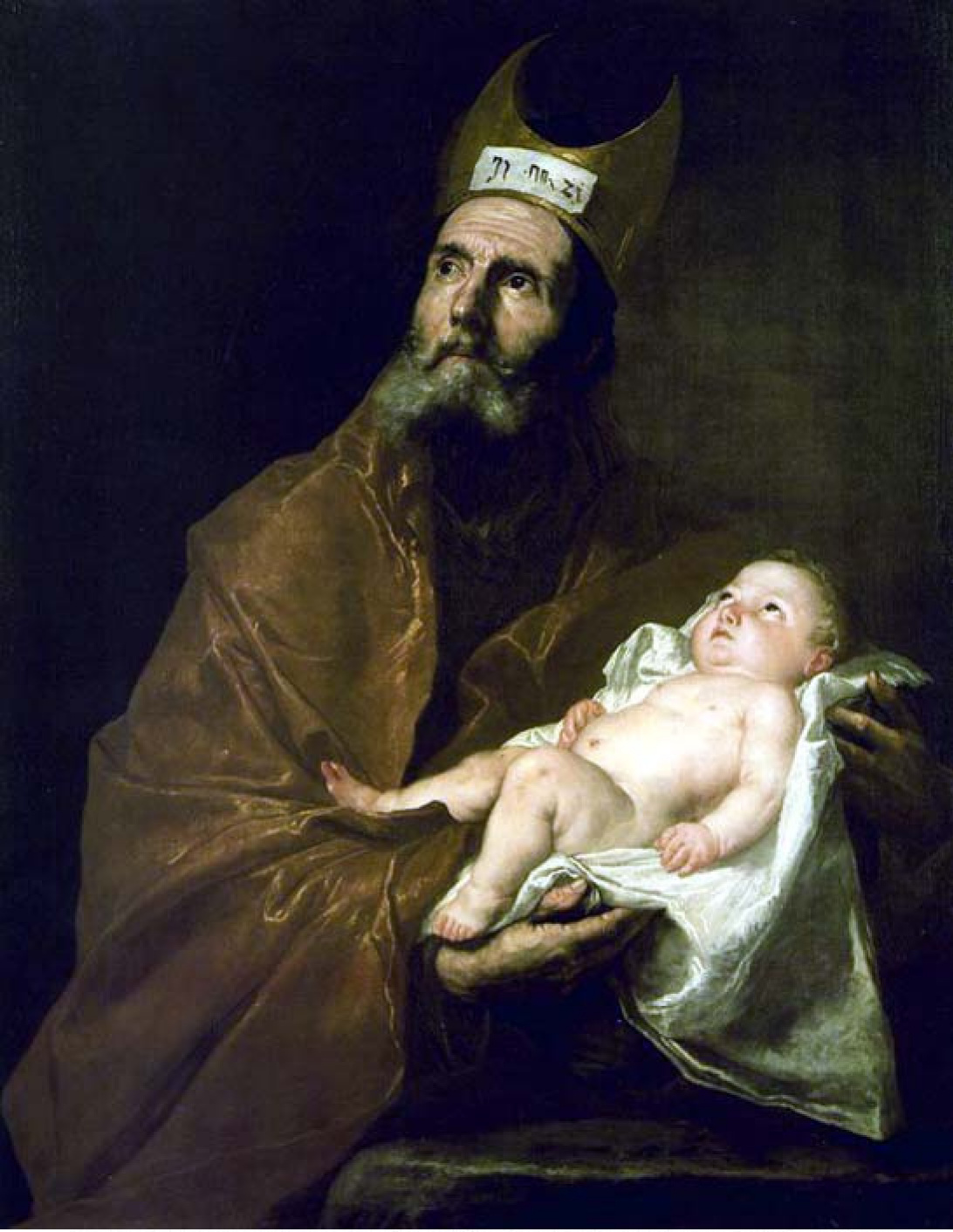
José de Ribera, Simeon with Christ (1647), oil on canvas, private collection.
Jesus Christ is truly a “sign that will be contradicted” as
Simon had told Mary[1]. Those who listened to
Jesus' words did not remain indifferent to them, to the point that, on this
occasion, as in many others, «the crowd was divided over Him»[2].
The reply of the officers who wanted to arrest the Lord centers the question
and shows us the power of Christ's words: «No one ever spoke like this man»[3].
It is like saying: His words are different; they are not empty boastful words,
full of arrogance and falseness. He is the Truth and his way of speaking
reflects this reality. And if this happened amid his audience, his deeds
provoked even more amazement and admiration; but also, criticism, gossip,
hate... Jesus Christ spoke the language of charity: his deeds and his words
showed the deep love He felt towards all men, especially those more in need of
assistance. We Christians are invited to be a real a sign of contradiction,
because we do not speak and behave like others do. By imitating and following
Jesus Christ, we likewise must use a language of charity and love, a necessary
language that, in fact, we can all understand. As our beloved pope emeritus Benedict
XVI, wrote in his encyclical Deus caritas est, «Love will always prove
necessary, even in the most just society (...). Whoever wants to eliminate love is preparing
to eliminate man as such» • AE
…

Anónimo, El profeta Jeremías, mosaico del ábisde de Santa María en Trastévere (Roma).
En la primera de las lecturas
de hoy vemos a Jeremías que aparece hoy como figura de Jesús: un justo
perseguido por su condición de profeta valiente, que de parte de Dios anuncia y
denuncia a un pueblo que no quiere oir sus palabras. Jeremías se da cuenta de los
planes que están tramando los que le quieren ver callado. Y se dirige con
confianza a Dios pidiendo su ayuda para que no prosperen los planes de sus
enemigos: «a ti he encomendado mi causa, Señor Dios mío». El drama de Jeremías
es estremecedor. La suya es una figura patética, por haber sido llamado por
Dios para ser profeta en tiempos muy difíciles. Pero prevalece en él la
confianza, como nos lo dice el salmo: «Señor, Dios mío, a ti me acojo, líbrame
de mis perseguidores y sálvame, apoya al inocente, tú que sondeas el corazón,
tú, el Dios justo». En estos días para nosotros cristianos la figura más
impresionante es la de Jesús, que camina con decisión, aunque con sufrimiento,
hacia el sacrificio de la cruz. Hoy lo vemos como el nuevo Jeremías. También él
es perseguido, condenado a muerte por los que se escandalizan de su mensaje.
Será también como cordero manso llevado al matadero. Si Jeremías pide «Señor, a
ti me acojo», Jesús en la cruz grita: «Padre, en tus manos encomiendo mi
espíritu». Entre ambos hay una gran diferencia. Jeremías pedía a Dios que le
vengara de sus enemigos. Jesús muere pidiendo a Dios que perdone a aquellos que
lo han matado • AE
No hay comentarios:
Publicar un comentario